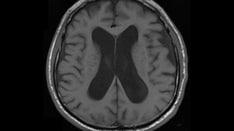During the past year, 11 US patients have presented with drug-resistant meningitis, according to a Health Alert Network health advisory from the Centers for Disease Control and Prevention (CDC). Neisseria meningitidis isolates from a patient's demonstrated resistance to both penicillin and ciprofloxacin.
In addition, another 22 cases reported from 2013 to 2020 showed resistance to penicillin but not to ciprofloxacin.
"These findings show that penicillin-resistant and ciprofloxacin-resistant meningococci are now present in the United States; however, the complete geographic and temporal distribution of these resistant meningococci is unclear, because not all US meningococcal disease cases have isolates available for [whole genome sequencing] or antimicrobial susceptibility testing," Lucy A. McNamara, PhD, Division of Bacterial Diseases, National Center for Immunization and Respiratory Diseases, CDC, and colleagues write in a report published online today in Morbidity and Mortality Weekly Report.
Meningococcal disease is a sudden-onset, potentially fatal disease caused by the N meningitidis bacterium. "Prompt empiric antibiotic treatment can reduce morbidity and mortality among patients, and antibiotic prophylaxis can prevent secondary disease in close contacts," the authors explain.
Until now, resistance to the antibiotics used to treat and prevent meningococcal disease has been rare and antimicrobial susceptibility testing (AST) has not been routinely performed on meningococcal isolates.
In January and February of this year, two cases of meningococcal disease occurred in residents of Maryland; both patients had β-lactamase-producing, ciprofloxacin-resistant NmY isolates. Following those cases, the CDC conducted a "systematic analysis of N meningitidis isolates in the United States" to ascertain whether there were other cases as well.
The CDC requested isolate submissions from state health departments and studied the existing whole genome sequencing data for them. They found 33 cases of meningococcal disease caused by N meningitidis serogroup Y (NmY) isolates that contained a bla(ROB-1) β-lactamase gene linked to penicillin resistance among cases reported from 2013 to 2020. Eleven of those isolates, all from 2019 or 2020, also showed genetic mutations associated with resistance to ciprofloxacin.
The 33 cases came from "12 geographically disparate states" — California, Colorado, Florida, Georgia, Kansas, Maryland, New Jersey, New York, North Carolina, Pennsylvania, Texas, and Washington. Two thirds of these cases (22) were reported among Hispanic persons.
"These cases represent a significant increase in penicillin- and ciprofloxacin-resistant meningococci in the United States," the authors explain.
Treatment Recommendations
"Ceftriaxone and cefotaxime, the recommended first-line agents for empiric bacterial meningitis treatment, can continue to be used for treatment, but healthcare providers should ascertain susceptibility of meningococcal isolates to penicillin before switching to penicillin or ampicillin," McNamara and colleagues write.
Clinicians and public health staff in states where cases of meningococcal disease caused by ciprofloxacin-resistant strains have occurred within the past 1 to 2 years "should consider AST on meningococcal isolates to inform prophylaxis decisions." Prophylaxis with ciprofloxacin, rifampin, or ceftriaxone should not be delayed while awaiting AST results.
The CDC recommends that state and territorial health departments continue to submit "all meningococcal isolates to CDC for AST and whole genome sequencing. Health departments also should report any suspected meningococcal treatment or prophylaxis failures," the authors explain.
Health departments that have cases with isolates that are found to be β-lactamase screen-positive or ciprofloxacin-resistant should obtain or request (meningnet@cdc.gov) a supplemental case report form and submit completed forms to CDC via secure email (meningnet@cdc.gov) or file transfer protocol (FTP) site.
The authors have disclosed no relevant financial relationships.
MMWR. Published online June 18, 2020. Full text
For more news, follow Medscape on Facebook, Twitter, Instagram, and YouTube.
Medscape Medical News © 2020
Cite this: Drug-Resistant Meningitis Found in SeveralUS Patients - Medscape - Jun 18, 2020.









Comments